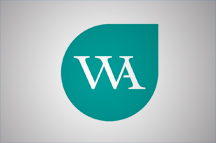 The importance of parliamentary by-elections can often be exaggerated by those observing – and winning – them. In reality, while the results can dominate news headlines for 24 hours, their longer term implications are usually more limited and they rarely fundamentally alter the political landscape.
The importance of parliamentary by-elections can often be exaggerated by those observing – and winning – them. In reality, while the results can dominate news headlines for 24 hours, their longer term implications are usually more limited and they rarely fundamentally alter the political landscape.
The leader of the Liberal Democrats Tim Farron claimed at the time that the Richmond Park by-election result would ‘terrify the Conservatives’, with many arguing that it would force the government to think again about pursuing a ‘hard Brexit’. Predictably, it’s made little tangible difference to the government’s approach. UKIP’s victories in Clacton and Rochester in the last parliament were seen by some to signal a wave of UKIP victories in the 2015 General Election. We all know what happened next.
In this context, should we be taking the two upcoming by-elections – in Copeland and Stoke on Trent Central – seriously, and will there be lasting implications?
Whatever the result it is unlikely to shift the political landscape. Those claiming that Jeremy Corbyn will be forced to stand down if Labour loses both seats are likely to be thinking optimistically.
But what these elections will do is give us greater insight into the current state of politics, and prove or disprove a lot of the growing assumptions about the next General Election.
 These by-elections will test the theory that UKIP and the Conservatives are a significant challenge to the Labour Party in their traditional northern heartlands. In these areas there there was little support for remaining in the EU and the party’s deep divisions over Brexit have not gone unnoticed. The result in both seats will place under scrutiny the assumption that Jeremy Corbyn’s leadership – often seen as incompetent and out of touch with the needs of ordinary working people outside of metropolitan, liberal London – will see the party lose seats that it could previously rely on.
These by-elections will test the theory that UKIP and the Conservatives are a significant challenge to the Labour Party in their traditional northern heartlands. In these areas there there was little support for remaining in the EU and the party’s deep divisions over Brexit have not gone unnoticed. The result in both seats will place under scrutiny the assumption that Jeremy Corbyn’s leadership – often seen as incompetent and out of touch with the needs of ordinary working people outside of metropolitan, liberal London – will see the party lose seats that it could previously rely on.
These are both seats that according to the media narrative the Labour Party should be struggling to hold. But, in mitigation, it will be harder than many think for UKIP and the Tories to win Stoke and Copeland respectively. For the government party to gain a seat in a by-election is almost unheard of; UKIP have failed to demonstrate that they have the professionalism and infrastructure to win elections in the north; the local candidates that Labour have selected may overcome doubts about the national party; and many Labour voters – while unhappy with the current state of the party – will not be attracted by the alternatives.
If the Tories can win in Copeland – a seat containing incredibly deprived working class towns as well as the beauty of the Lake District – it will demonstrate that Theresa May’s focus on those ‘just about managing’ is more than just rhetoric.
Similarly, if UKIP are able to win – or at the least launch a significant assault on Labour’s majority – in Stoke then the speculation that dozens of Labour seats in the north are now vulnerable can be substantiated.
If either party fail then the talk of Labour’s near demise will likely be just that – talk. Either way, don’t expect an earthquake, rather a pointer to what we can expect in the future.














